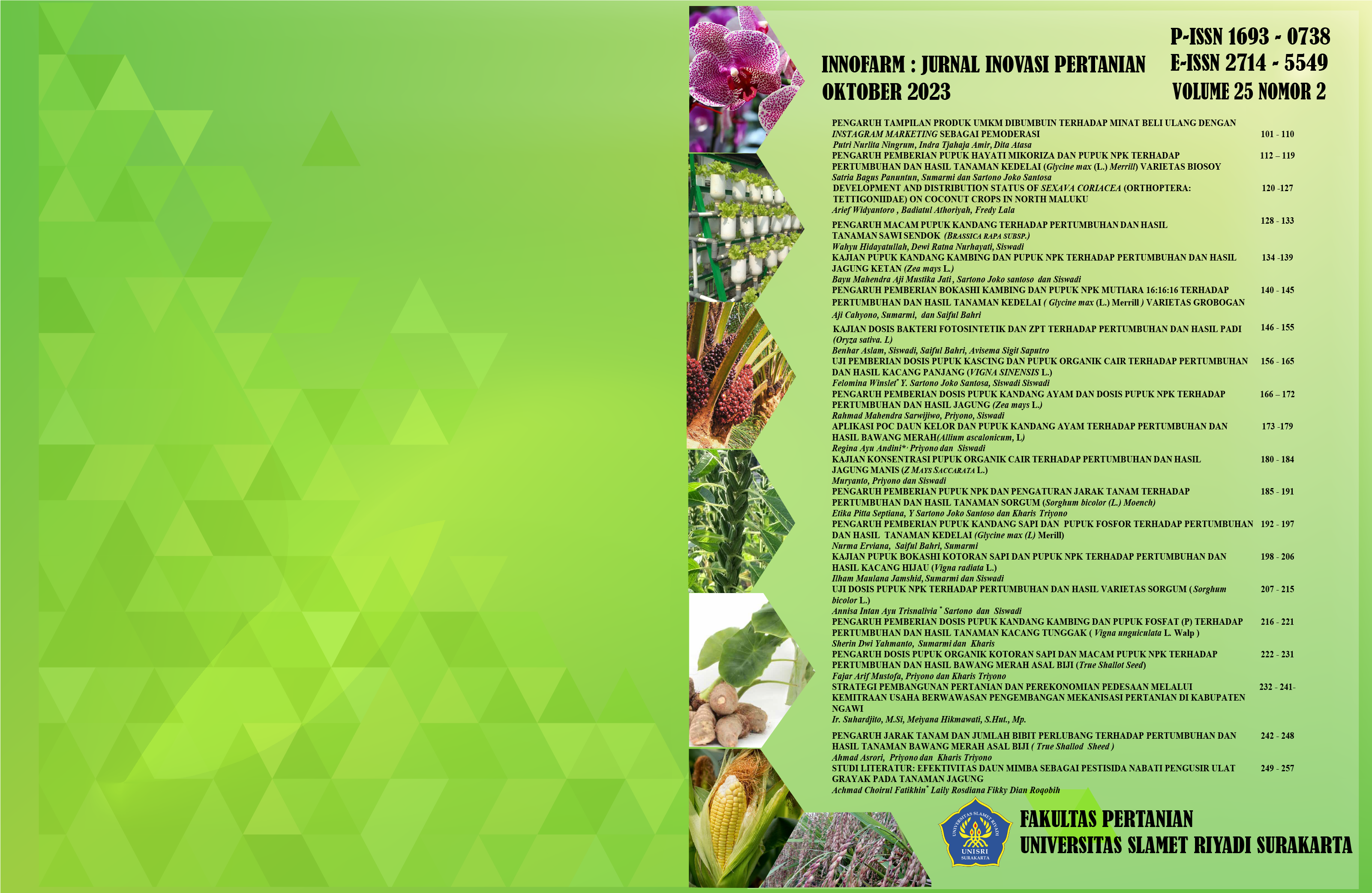Literature Review: Effectiveness of Neem Leaves as a Botanical Pesticide against Fall Armyworm on Maize Plants
botanical pesticides; Neem; fall armyworm; maize plants
DOI:
https://doi.org/10.33061/innofarm.v25i2.9065Abstract
This study aimed to investigate the use of botanical pesticides from Neem (Azadirachta indica A. Juss.) as an alternative control measure for fall armyworm (Spodoptera frugiperda) on maize plants. Botanical pesticides had the potential to replace chemical pesticides in efforts to reduce negative impacts on the environment and human health. This study used a literature review method with secondary data obtained from Science and Technology Index (SINTA), Google Scholar, Research Gate, IOP Science, and Science Direct databases, covering the period of 2015-2023, using keywords such as botanical pesticides, Neem, and fall armyworm. The results of the study indicated that the use of Neem extract (Azadirachta indica) as a botanical insecticide was effective and environmentally friendly in controlling fall armyworm infestation on maize plants. Neem oil spray was shown to reduce fall armyworm infestation in maize plants in several studies. Natural chemical compounds in Neem such as Azadirachtin, salannin, meliantriol, and Nimbin had insecticidal effects, inhibiting pest insect growth, reducing feeding behavior, reducing egg production and hatching, and increasing mortality. The use of botanical pesticides from Neem (Azadirachta indica A. Juss.) had the potential as an effective and environmentally friendly alternative for fall armyworm control on maize plants. However, further research was needed to optimize the use of botanical pesticides from Neem in controlling fall armyworm and evaluating their impacts on the environment and human health.
Downloads
Published
Issue
Section
License
Copyright (c) 2023 Achmad Choirul Fatikhin, Laily Rosdiana, Fikky Dian Roqobih

This work is licensed under a Creative Commons Attribution-NonCommercial 4.0 International License.
Authors who publish this journal agree to the following terms:
- Authors retain copyright and grant the journal right of first publication with the work simultaneously licensed under a Creative Commons Attribution License that allows others to share the work with an acknowledgement of the work's authorship and initial publication in this journal.
- Authors can separately make additional contractual arrangements for non-exclusive distribution published by the journal (e.g., publish it in a book), with an acknowledgement of its initial publication in this journal.
- Authors are allowed and encouraged to send their work via online (e.g., in the institutional repositories or their website) after published by the journal.


















